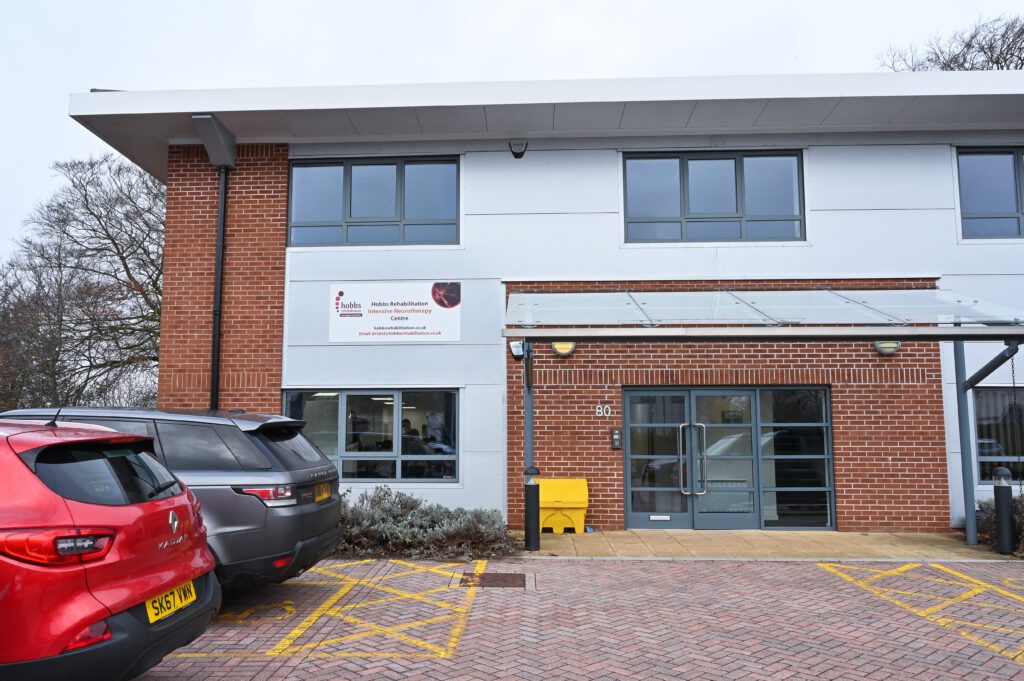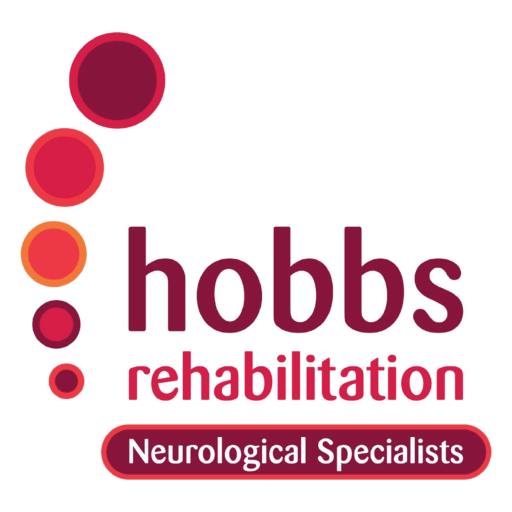Having a neurological condition doesn’t just bring physical challenges to individuals, it can severely impact mental health too.
At Hobbs Rehabilitation, our dedicated team of Clinical/Neuro Psychologists play a vital role in supporting the emotional and cognitive well-being of individuals living with neurological illness or injury. By helping clients navigate the cognitive, behavioural, and emotional changes that can follow conditions (such as stroke, brain injuries, FND, etc.), they empower people to regain independence, enhance well-being, and improve overall quality of life.

In recognition of Mental Health Awareness Week, we’re shining a spotlight on Dr Rebecca Andrews, Principal Clinical Psychologist in Neuropsychology at our Bristol centre.
Join us as Rebecca dives into what it’s like working in the psychology service at Hobbs Rehabilitation, her passion for supporting individuals after stroke, and the moments that make her role so rewarding.
How long have you worked at Hobbs Rehabilitation?
I joined Hobbs in August last year, so I’ve been here for about ten months now. I relocated from London around the same time, which made for a slightly chaotic but exciting new chapter of life. Stepping into a new role with such a warm and dynamic team made the transition much easier.
What are you responsible for as a Principal Clinical Psychologist in Neuropsychology at Bristol?
When I first joined Hobbs, the Bristol service was already doing amazing work in physiotherapy, occupational therapy, and speech and language therapy, often integrated with neurotechnology. But it became increasingly clear that many clients, having been through significant neurological injuries or conditions, may also benefit from psychological support.
My role includes carrying out initial assessments to explore potential cognitive difficulties as well as emotional or behavioural changes. From there, I offer ongoing treatment, often in collaboration with the multidisciplinary team to support clients in reaching their rehabilitation goals and leading fulfilling lives post-injury.
Recently, I’ve been co-developing a fatigue management group with our specialist OTs, developing training for other professionals, and helping the wider team build psychological formulations that shape holistic, personalised treatment plans.
What inspired you to pursue this career path?
I’ve always been fascinated by the relationship between the brain, behaviour, and wellbeing, and how people find meaning and resilience in the face of life-changing events. My interest really deepened during my clinical training, particularly while working with individuals following neurological injuries. I was struck by how psychological support could make a real difference, not just in how people understand their condition but in how they rebuild their sense of identity and purpose.
My doctoral thesis focused on a values-based intervention for individuals with Acquired Brain Injuries (predominantly stroke and Traumatic Brain Injury, TBI) and depression. The idea was to help people re-engage with what matters most to them – whether that’s connection, independence, adventure or something else – as a route to emotional recovery.
One client I worked with during this project sticks with me to this day. He’d identified “fun” and “love” as core values. Despite the consequences of his stroke, the small matter of a global pandemic and the strict hospital restrictions in place, he set his sights on organising a Christmas karaoke party for the ward. With help from our team, he contacted local businesses who donated food, interviewed patients about their music and food preferences, and made the decorations with others on the ward.
It was incredibly moving to watch him pull it off, using cognitive, language and physical strategies. He brought so much joy and connection to others on the ward during an incredibly difficult time.
What does a typical day look like for you now you’re at Hobbs?
No two days are the same at Hobbs, which is perfect for me. My days usually start with coffee, followed by a mix of session planning, one-to-one or joint therapy sessions, team meetings, and collaboration with local ABI services, case managers or solicitors.
I might also be running training, developing new group programmes, or helping the team think through psychological formulations for complex cases. I spend time liaising with families and carers too, helping them better understand what recovery might look like, and how best to support it. It’s varied and endlessly interesting.
What can patients expect to achieve from your treatment sessions?
Every client’s journey is different, so my approach is always tailored to the individual. I love that I have the flexibility needed to work integratively, drawing on different psychological models depending on the person’s needs. These might include Cognitive Behavioural Therapy (CBT), Acceptance and Commitment Therapy (ACT), Compassion-Focused Therapy (CFT), or systemic and trauma-informed approaches, amongst others.
For example, someone recovering from a stroke might work on understanding their condition, improving attention or memory, managing emotional changes like anxiety and low mood, or addressing behavioural changes. Meanwhile, a person with a progressive neurological condition might focus on acceptance, future planning, and maintaining quality of life.
The ultimate goal is to help people better understand their condition, build confidence, and develop strategies that allow them to live a meaningful life – even if it looks different to before, there are always creative ways to connect with what is important to them.
Why is our Clinical Neuropsychology service important to clients who’ve experienced stroke?
A stroke affects far more than just the physical body. It can impact thinking, behaviour, mood, relationships, and a person’s sense of identity. Clinical Neuropsychology helps people to understand and manage those changes.
We work with stroke survivors to explore how their cognition and emotions have been affected, and to develop strategies to cope, adjust, and rebuild. That psychological support can have a ripple effect, often improving motivation, participation in physical rehab, and overall quality of life. It’s all connected, really.
What is your biggest work accomplishment?
The moments that really stay with me are the individual stories. For example, I once worked with a young person who experienced a stroke using a narrative approach, blended with values work from ACT. She later described her journey as “a stroke of luck”– not because it was easy or she would have chosen it, but because it gave her the opportunity to re-evaluate what truly mattered and to build a life aligned with this.
Of course, a stroke is an incredibly tough experience, and the path forward isn’t always clear. But seeing someone rediscover meaning and rebuild in the face of adversity – that’s the kind of accomplishment that makes this kind of work worth it.

Closing Thoughts
We hope Rebecca’s interview has shed light on the vital role Clinical Neuropsychology plays in supporting individuals with neurological conditions. It’s clear that psychological support during neurological rehabilitation is equally as important as the other therapeutic approaches (such as physiotherapy, occupational therapy, speech and language therapy), and that it can make a real difference to someone’s recovery, independence, and quality of life.
If you or a loved one could benefit from psychological support as part of your neurological rehabilitation, we encourage you to visit our psychology service page or reach out via our website’s contact form.

